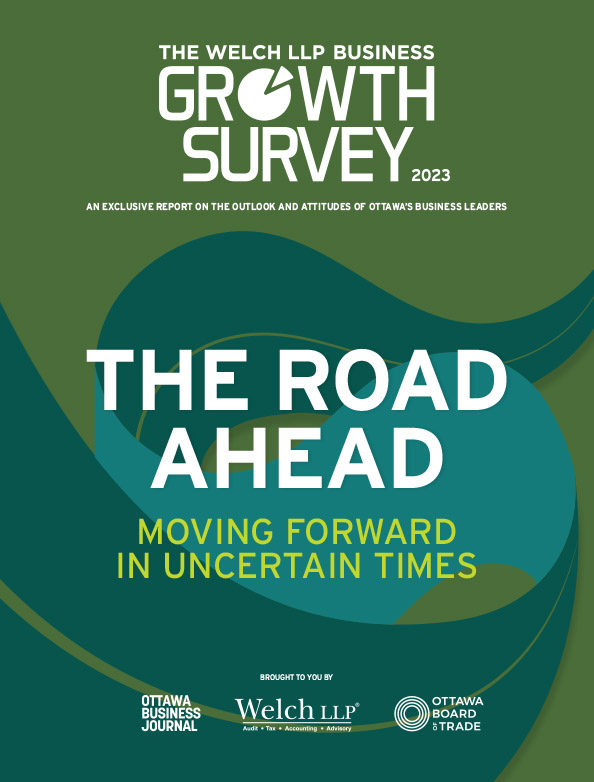When Ottawa business owners were asked, “How has your company incorporated sustainability and climate change into your business objectives?” as part of the 2023 Welch LLP Business Growth Survey, they shared some interesting insights.
Twenty-four per cent of organizations hadn’t given it any thought, while 40 per cent admitted they’re just figuring out how it applies to their business. About one-third acknowledged that kick-starting their “going green” journey is important; 36 per cent said they’d identified the benefits and believe it’s critical to future success.

So what’s an organization to do?
It helps to recognize that change won’t happen overnight. For many businesses, preparing for a net-zero future may involve reviewing their growth strategy, purpose and values.
This is how Level Six, an Ottawa- based outdoors company, sees it. The organization is working to redesign and rethink how paddling gear is made and to extend the life cycle of its products.
Becoming more ecologically sound is a core component of the brand. Stig Larsson, Level Six’s CEO, is pushing to (eventually) have 100 per cent of its garments made from recycled fabrics. This year, the business aims to eliminate the use of all non- renewable packaging in its products.
“You (may want) to look inward at your company’s strategy and values to ensure you’re doing everything you can to help it become environmentally friendly … that you’re making business decisions so your employees, customers and the community can count on you without concern for their future,” Larsson says.
From there, businesses — and their leaders — may benefit from seeking the knowledge, advice and support of like-minded companies and other stakeholders, including investors and employees, who are concerned about the impacts of climate change and who can identify what initiatives might work best for the business.
There are organizations like Green Economy Canada, for example, that offer a Climate Action Boot Camp to help small and medium-sized enterprises learn about their carbon footprint and
the business case for reducing their greenhouse gas emissions.
At RBC, we’re working to accelerate tech-based solutions that help preserve the natural ecosystem by providing $100 million by 2025 to support organizations that are leveraging technology and innovation capabilities to solve pressing environmental challenges.
Examples include the Ottawa Climate Action Fund’s commercial building retrofit program and Ottawa Riverkeeper’s study of the health of the Ottawa River.
Business owners may also consider starting to educate their consumers, partners and suppliers about their climate-related goals.
This is something Bushbalm Skincare actively does with its customers. “We educate (them) on how to recycle our products both on the product pages and through social storytelling,” the company’s co-founder and COO Tim Burns notes.
The Ottawa-based organization also strives to make intentional choices about the plastics it uses with its suppliers. “In an industry traditionally known for a lot of waste, we are continuing to look for ways to improve,” Burns says.
In the end, building a net-zero organization won’t happen overnight, so it’s important that a company start reviewing its practices sooner rather than later.

This article was submitted by RBC’s regional vice-president, business financial services Justin Shurman. This piece first appeared in the 2023 Welch LLP Business Growth Survey, the city’s premiere survey and magazine that looks at business trends and confidence in the capital.
To download your own copy of the WBGS magazine, click here.

